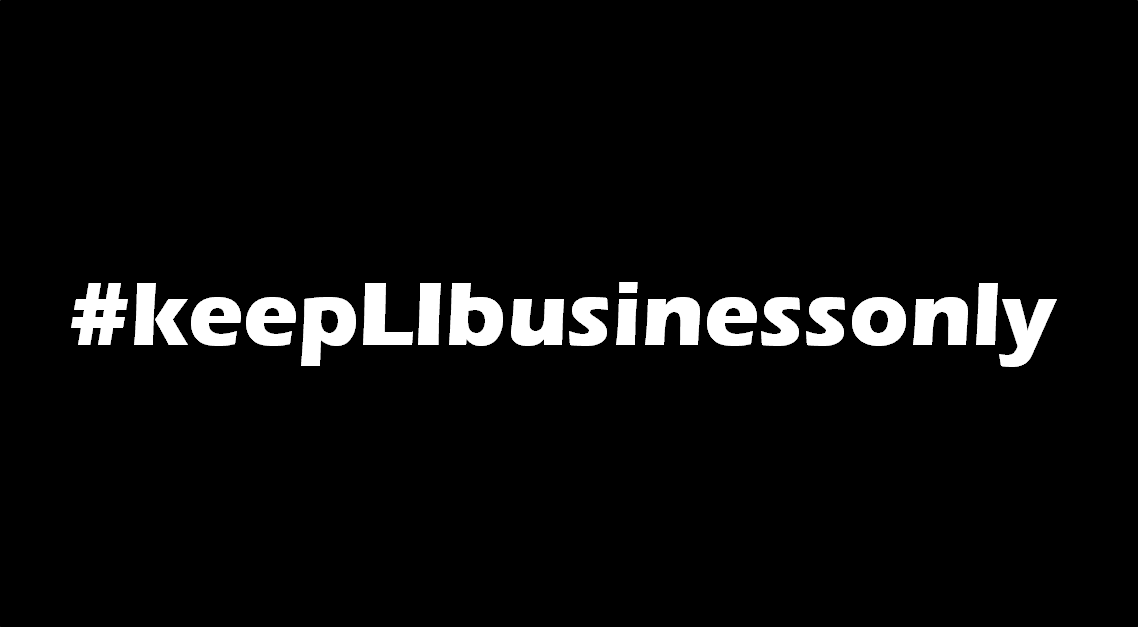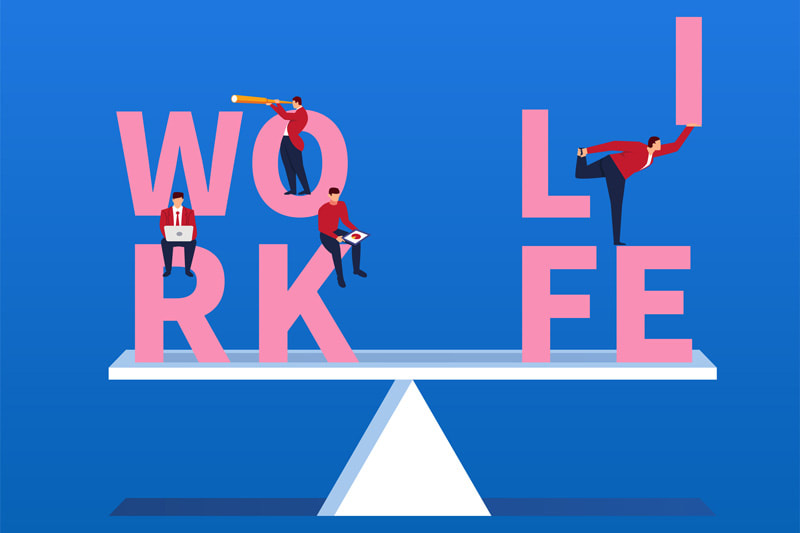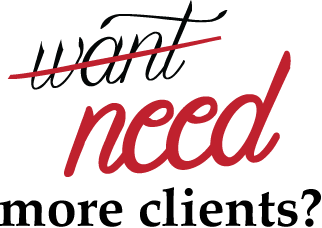|
Our managing director Travis Smith covers five (5) key questions anyone in a buying position should be asking a consulting firm or individual consultant to better qualify them prior to making the buying decision.
Read the full article at www.sqr1services.com/white-papers/how-to-solve-your-1-business-challenge
0 Comments
We’re living in some wild times right now. Wild in the sense that life is changing rapidly around us, so fast in fact it can be challenging to keep up with it all. This is certainly the way of the world and what we can expect for the foreseeable future.
While change is inevitable, some change isn’t always for the best. Enter LinkedIn. If you’re unfamiliar with the story of LinkedIn you may be surprised to know it actually went live in May of 2003. You read that right, LinkedIn got started even before YouTube and Facebook. In the beginning LinkedIn’s mission statement was ‘connect the world's professionals to make them more productive and successful’. This is the foundation, the bedrock, of what LinkedIn was supposed to be. Fast forward to today, LinkedIn now owned by Microsoft since 2016, still has this same mission yet the actual user experience of the platform is anything but business focused. A quick scroll down LinkedIn’s running content feed reveals content posted by people and companies covering literally every spectrum imaginable from business, politics, religion, personal pictures and even cat memes. Lots of memes. This, in my most humble of opinions, is an unfortunate perversion of the platform. Today there are literally dozens of social media platforms offering us the opportunity to connect, speak our minds, share content while being paper tigers and internet trolls. So why is it LinkedIn keeps going the way of everyone else and allowing content that isn’t business related? It’s lost its competitive advantage. Why also are we as users adulterating this platform making it like all the others? As a daily user of LinkedIn my soul purpose for using this platform is for business purposes, so naturally this is my bias. I don’t use LinkedIn for anything else except business and on a daily basis wish that was the case for everyone else on the platform. I’m aware this is a big wish, perhaps colossal. There are dozens of other social communication platforms available for non-business purposes including Facebook, Instagram, Twitter, Tik Tok, YouTube, Tumblr, QQ, etc. If you want to post something non-business related you have a never-ending list of options at your disposal outside of LinkedIn. About a year ago I made a personal decision to remove myself permanently from all other social media platforms as I felt like the time I was spending on them, along with the negativity, wasn’t providing good value in my life. Fast forward to today, it’s hard to discern the difference between LinkedIn and other platforms like Facebook, Twitter, etc. This, again in my most humble of opinions, is a sad statement as the idea and original intention of what LinkedIn was supposed to be is a great thing. One which I believe is greatly needed in the world of business. So here is my ask – please stop using LinkedIn for non-business purposes. Take your cat memes, politics, religious statements and personal content to Facebook where it belongs. That being said, in the nicest way I know possible, here’s what I’m not saying in the above statement:
I’m also well aware of the fact that one can simply pass by unwanted content on LinkedIn they don’t like and or remove the connection or hide the content for future purposes. While yes, that is a possible solution it doesn’t necessarily solve the problem. Hiding or just passing by unwanted content is a form of indifference. E.W. Howe is quoted as saying “The most destructive criticism is indifference”. I agree. I remain convinced, even more so today, LinkedIn should and must remain focused solely on business. No exceptions. If you feel the same way about removing non-business content on LinkedIn I ask you to join me in using this hash tag any time you see content that isn’t business related. #keepLIbusinessonly Perhaps over time we can turn the tides and get this platform back to the way it was intended to be – for business purposes only. Be well & live wisely. Dealing With Awkwardness in Negotiations6/22/2020 Negotiations can be uncomfortable. How we deal with those moments of awkwardness and discomfort makes or breaks our experience and of course the end result. Here's why...
Visit Square-1 Engineering's Resources Library for additional white papers, articles and videos covering a broad range of content from product design, supplier relationships to leadership. http://www.sqr1services.com/resource-library.html #square1engineering #square1 #engineering #lifescience #consulting #negotiation #advice #business #strategy Co-Authored by Trisha Aure & Travis Smith
Many of us have been confronted as of recent with a reality which isn’t the status quo from before. As we continue to evolve and adjust our business and professional lives around COVID-19 inevitably many things will change for us in the short term. How we adapt to those changes makes or breaks our ability to grow personally while continuing to excel professionally. As social distancing continues to be a requirement in order to deal with COVID-19 companies and their employees are finding themselves in one of the biggest predicaments of arguably the last 40 years – the way we’ve done things in the past won’t work in the future. One of the biggest changes companies are having to adapt to is their employees not being able to come into the office, resulting in hundreds of thousands of people working from home – and doing so for their first time. We’ll be the first to tell you it can be a rather jarring experience if you don’t go about ‘working from home’ in a methodical fashion. With the freedom which comes from working at home also comes great responsibility – a responsibility that can be downright tough for many of us as distractions are a plenty. Below are 15 tips for working at home you can implement to ensure your time is efficient while succeeding with a masters grace:
Take Away Creating a new ‘work from home rhythm’ as close to our normal routine as possible will be the quickest way to staying on track with work and personal life. Schedule your day everyday and communicate that with your team and manager. You will find you’ll get more work done, often in a quicker timeframe. Key Consideration This is not a time to panic, this is the time to adjust and keep moving forward. A positive mindset and an openness to change are the keys to success here. Remember, things will resume like usual at some point soon. Keep your head up, smile, wash your hands and remember to be kind to others. We got this! Monday Quickie - Your Desire for 'Work life Balance' is Hurting Both Your Career & Personal Life10/14/2019 Article was written by guest writer Trisha Aure
Many of us live two lives. These two lives run on parallel tracks to one another yet few of us understand the dichotomy which exists by having a work life and a home life which operate separate from one another. We’ve been told growing up these lives need to be mutual exclusive of one another where we don’t bring our personal life and issues to work and vice versa. This inevitably creates a variety of issues for us at both the home and office. The biggest issue it creates is our ability to grow as people which leads to our ability to grow as professionals. Have you ever heard that personal growth is necessary for professional growth? It is, I just didn’t realize how critical this was till about 6 years ago. Some people believe separation needs to exist between work and home, or ‘work life balance’ as we commonly like to phrase it. I’m not convinced ‘work life balance’ is possible, especially not if you are looking to create a long term successful career which your personal life benefits from. This ladies and gentlemen is where my career ah-ha moment began – the idea of a ‘work life balance’ is garbage. We look at this phrase typically from the work side of things meaning we should work less in order to enjoy our personal lives more. Yet how often are we looking at this phrase from the personal side to understand how we impact our professional experience based on who we are outside of work. It goes both ways and to think a steady ‘balance’ between the two is possible is a dream in fantasy land. I was in a new company and aggressively working on advancing my career. I had a lot of personal baggage I thought I was leaving at the door before I walked into the office. I had some deep heartache within my family dynamic that I never figured out how to live with, so I decided to act as though my life was perfect and I ignored my past. This act forced me to live two different lives and I will tell you, this was not only one of the hardest parts of my life but it was definitely the loneliest. This is where I learned I wear my heart, and therefore emotions, on my sleeve. This isn’t necessarily a bad thing, because that is where my passion comes from, the heart. What I learned is when you are essentially living two different lives, it starts to take a toll on both your career and personal life. I had received some hard feedback and it was based on my attitude because I was aggressively trying to hold my personal struggles back. If anyone has ever been here before you know that holding feelings back only creates a blow up later down the road and mine happened at work. Luckily, I had great people around me that cared about me professionally AND personally. I obtained a mentor and started receiving coaching on how to deal with my struggles that I quite frankly kept pushing down for over a decade. It was not an easy nor short process. Then again, anything worth having or doing right isn’t easy in the first place. I started working on building a healthy mind, body and soul, and 6 years later I’ve continued this quest not stopping once. Growth is an everyday event and I have built some great routines that have helped me merge my two lives between home and work. After 6 years of focus, dedication and some really hard work to improve myself I have lost 40 pounds (and kept it off), I’m in a leadership role with a company I’m part-owner in, I’m actively involved in the community and constantly improving my life on both sides. I honestly do not believe I would be where I’m at today if I continued to try and live two different lives. To tie this all together, I believe that growth within your career begins at home. Have you ever heard, you can’t love someone until you love yourself? I believe that this internal love for yourself will only push you to cross any and all boundaries that you put up yourself. Stop putting up boundaries, and add some goals to your life. Once you start pushing forward, it’s crazy how that turns into unstoppable. Key Take Away You must take care of yourself in order for you to strive in other parts of your life. In regards to work and life, this is an AND, not an OR. We need to be confident in both in order to grow in both. I’m continuously reading leadership books and I can relate what I read in both my professional and personal life. We need to do away with catchy slogans like ‘work life balance’ because all they do is drive us to live a lifestyle which isn’t attainable. Action Item If you are stagnant in your career, or struggling with something personally and you see it hindering other aspects in your life, find someone to talk to, find a mentor, find a coach to help you figure out how to get over that hump. I currently have a mentor which I found on micromentor.org. This is a free site and it matches you with people that are looking to grow their career in various areas. Growth is definitely uncomfortable and no one likes change, but building a strong support system will help guide us in achieving our goals and creating a well balanced successful life.
|
Visit Square-1's
|
|













 RSS Feed
RSS Feed


